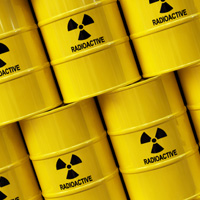MacArthur has established the Science, Technology and Security Initiative to increase the pool of independent experts able to provide scientific and technical advice on issues related to international security policy.
Over the past 20 years, the number of expert scientists able to bridge the information divide between technology and public policy has decreased, both in the U.S. and in other countries capable of producing weapons of mass destruction. The initiative, which is part of the International Peace and Security area of the Foundation's Program on Global Security and Sustainability, intends to help build a new generation of scientists in these countries who will be able to provide expert advice and analysis to help decrease the threat that weapons of mass destruction pose to international peace and security. To do so, the initiative will: 1) help to strengthen university-based policy centers of science, technology and security; 2) provide opportunities for this new generation of experts to engage in the policy process; and 3) help to develop relationships between scientific experts at universities and policymakers in the international security field.
"Policymakers and the public need reliable, independent advice from scientists in making choices that will shape relations among nations and enhance the prospects for peace and security," said Jonathan F. Fanton, President of the MacArthur Foundation. "A generation of scientists - and their students - drawn into public policy by the Manhattan Project and the Cold War is passing from service. We need a successor generation in the U.S. and in other countries that have the capability of producing weapons of mass destruction."
To advance the objectives of this new initiative, nearly $4 million in grants have already been made to institutions in the U.S., Russia and China. Future funding will continue to be directed toward university and research centers in countries that can play a critical role in reducing the spread of weapons of mass destruction, including the U.S., Russia, China, India and Pakistan.
Harvard University's Belfer Center for Science and International Affairs was awarded $946,000 over three years to fund pre- and post-doctoral fellowships for research on nuclear arms control and nuclear security as part of the Managing the Atom Project. The Managing the Atom Project was launched in 1996 to focus on issues at the intersection of nuclear weapons, nuclear energy and democratic governance. It combines three research areas based at the Belfer Center: 1) science, technology and public policy; 2) environment and natural resources; and 3) international security.
The Federation of American Scientists received $800,000 to carry out research and analysis on issues related to global security and link the work of scientists to that of policymakers. The funding will help bring scientists and engineers more directly into policy discussions on such issues as nuclear testing, strategic arms reductions, missile defense systems, nuclear non-proliferation, and the weaponization of outer space. The Federation was founded in 1945 by Manhattan Project scientists to help ensure that public policy on issues concerning nuclear weapons reflected the best available research.
A grant of $707,000 over two years was made to the Technical Working Group at the Massachusetts Institute of Technology's Security Studies Program. The grant will be used to expand the Working Group's research, training and public education around technology-related international security problems. MIT's Technical Working Group is home to scientists working full-time on a range of issues in arms control, disarmament, nuclear proliferation, ballistic missile proliferation, national defense and force structures, and disposition of fissile material.
Princeton University's Program on Science and Global Security at the Woodrow Wilson School of Public and International Affairs was awarded a grant of $600,000 over two years to expand its research and training on nuclear arms control and nuclear proliferation in Russia. The program provides independent research and analysis on policy initiatives in the nuclear disarmament and nuclear nonproliferation fields.
A grant of $177,000 over two years was made to the Center for Arms Control, Energy, and Environment Studies at the Moscow Institute of Physics and Technology to establish an educational program in Russia that provides training on technical aspects of arms control, disarmament, nonproliferation and military policy. The Moscow Institute was founded in 1946 by the Moscow State University to prepare specialists in high technology areas for the Soviet Union's national defense industries. The Center was established in 1991 as an independent nongovernmental research organization.
The Analytical Center for Nonproliferation in Sarov, Russia, was awarded a grant of $60,000 over one year to conduct policy research and public education, with the cooperation of international research partners, on several technical issues related to nuclear threat reduction. The Analytical Center is a nonproliferation group that conducts technical analysis on nonproliferation and arms control.
A grant of $48,000 over one year was awarded to the Program for Science and National Security Studies at the Beijing Institute of Applied Physics and Mathematics. The funding will be used to host an international seminar on arms control issues near Beijing, China, that will bring together prominent scientists from China, the U.S. and other countries to discuss issues related to nuclear arms reduction and international security. The Program houses scientists of the Beijing Institute who conduct research on technical aspects of arms control.
QUICK LINKS



